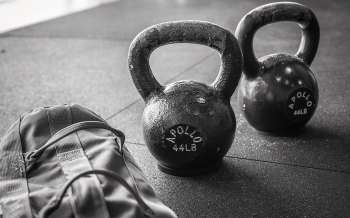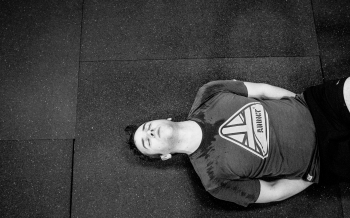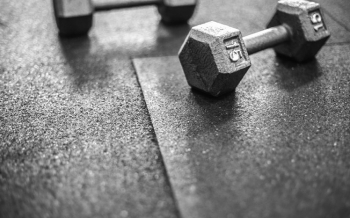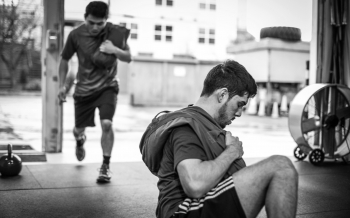Home / Shop / Online Training / Fire & Rescue Fitness /

Wildland Fire – Arete
- Sandbag-based strength and work capacity conditioning for the BJJ athlete.
- 5 training weeks, 5 sessions days per week, 25 total sessions.
- This protocol can be adapted to fit into your current BJJ training schedule.
- Appropriate for recreational and professional athletes preferring a minimalist protocol that can be completed in 30-45 minutes.
$29.00
PROTOCOL OVERVIEW
Arete is an intense, 5-week, 5 training day/week, "base fitness" protocol with a focus on building strength, rucking endurance, agility, and functional midsection strength ahead of the wildland firefighting season. Most training sessions are conducted in kit or weight vest to mimic the equipment requirements of these types of events. This protocol has training for a general physical fitness test, 3-mile ruck (work capacity) assessment, and base fitness training needed to meet the fitness demands of the job.
PRE-TRAINING ASSUMPTIONS
Before starting this protocol it is assumed that you are a person of sound health with an adequate level of fitness (training history and experience with strength and conditioning). It is also assumed that you can tolerate 4-5 training sessions per week. If this is currently not the case it can be accomplished by completing 3-6 months of our general or tactical fitness programming or 12+ months of athletic conditioning.
PHYSICAL FITNESS TEST CRITERIA
The plan includes 3 PFT and ruck specific assessments as well as follow on training designed to improve your scores for these assessments. You’ll take these assessments 3 times over the 7 week cycle:
1) Max Repetition Pull-up or Plank Pull (Not Timed)
2) 300m Shuttle Run for Time
3) Max Repetition Bench or Bar Dip in 2:00 min.
4) Max Repetition Russian Triangle in 2:00 min.
5) 1.5-mile Run for Time
6) 3-mile Ruck in under 45:00 min.
SUGGESTED TRAINING ATTIRE
It is strongly recommended that you train in whatever uniform (i.e. PT gear) you will be using during your testing and training. During your in-gym sessions you can wear whatever attire you find to be most appropriate for heavy strength and high intensity training.
DISCLAIMER
The information presented in this work is by no way intended as medical advice or as a substitute for medical counseling. The information should be used in conjunction with the guidance and care of your physician. Consult your physician before beginning this program as you would with any exercise or nutrition program. If you choose not to obtain the consent of your physician and/or work with your physician throughout the duration of your time using the recommendations in the program, you are agreeing to accept full responsibility for your actions.
By continuing with the program you recognize that despite all precautions on the part of Epoch Ascent, LLC, there are risks of injury or illness which can occur because of your use of the aforementioned information and you expressly assume such risks and waive, relinquish and release any claim which you may have against Epoch Ascent, LLC and its representatives, or its affiliates as a result of any future physical injury or illness incurred in connection with, or as a result of, the use or misuse of the program.
- To complete this program you'll need the following equipment:
- Fire pack or ruck with 45# filler. You can use sandbags, dumbbells, or other equipment for weight.
- 15# Sledgehammer w/tire or log for sledgehammer into tire/log hits.
- 15# hand tool, dumbbell for ruck-based sessions.
- Step-up or plyo box – 16-18″
- Stop watch with repeating countdown timer.
- Track, road or easy trail of known distance(s).
**For the equipment you do not have, be resourceful and do the best with what you have on hand, build it or source it.
- Suggested equipment:
- Hand counter for use with Step-ups.
- Foam roller or other implements for self-myofascial release work.
- GPS tracker for waypoint and accurate distance measuring.
Who is this program most appropriate for?
Current US Forest Service firefighters and applicants that want to improve their PFT and work capacity assessment scores as well as enhance their overall readiness for the wildland firefighting season.
What do I do if have less than 7 weeks before my test date?
Start from the beginning of the protocol regardless and then complete as many sessions as possible prior to your assessment. Also remember to allow yourself 3-5 rest days prior to your PFT or work capacity assessment date.
How do I know if I am fit enough to start this protocol?
Whether you’re a well-conditioned firefighter or a novice with only a few months of strength conditioning under your belt, the majority of the training in this protocol is scalable to your specific ability level. If you’re still not sure then try out week 1 under the “sample training” tab. If you successfully complete this week of training then the follow-on weeks shouldn’t be too difficult to complete in full.
I could stand to lose a few pounds prior to my season. Will this protocol help me with that?
In addition to improving job specific fitness, this protocol is also designed to help individuals lose unnecessary fat mass as well. In order to see the best results, we suggest you pair this protocol with a healthy diet that suits your current lifestyle and level of discipline. See out FAQ page for some of our basic guidelines concerning nutrition.
How should I train if I cannot maintain a 5 on, 2 off schedule?
It is ideal that you train 5 days in a row with 2 full days off for rest. If you miss a session for some reason, avoid skipping ahead and start again where you left off and complete the sessions in order throughout the plan. If you miss more than a few days in a training week you should start that training week from the beginning in order to get the most out of this training program.
I have more questions, where can I have those answered?
Please email us at training@epochascent.com



